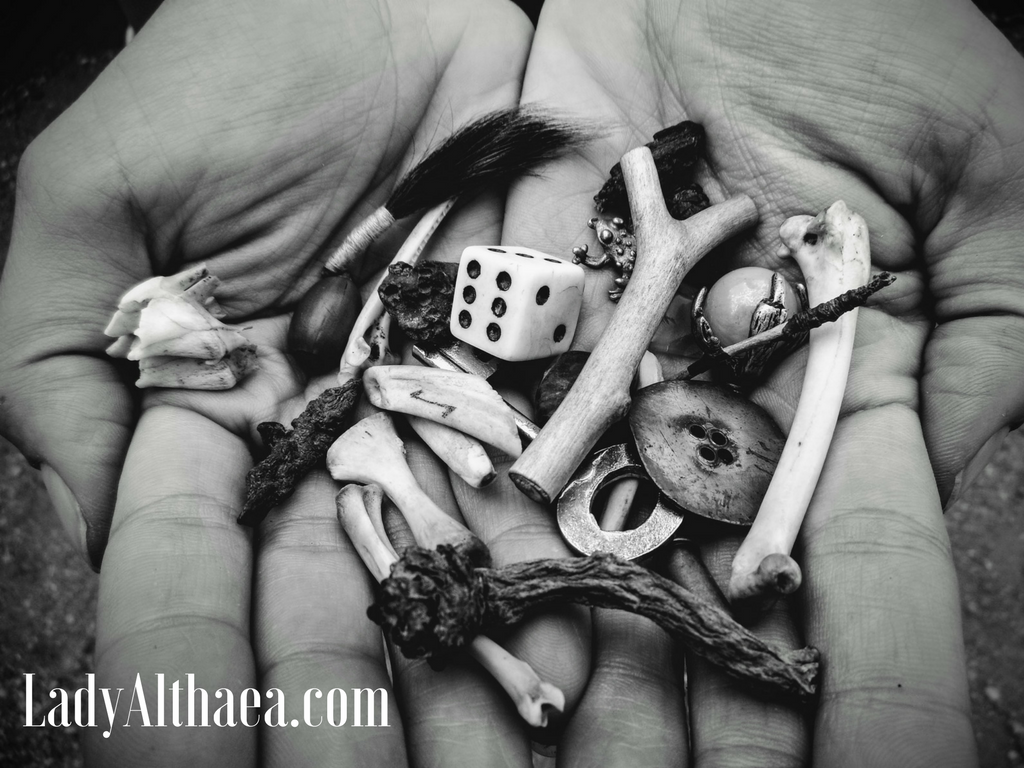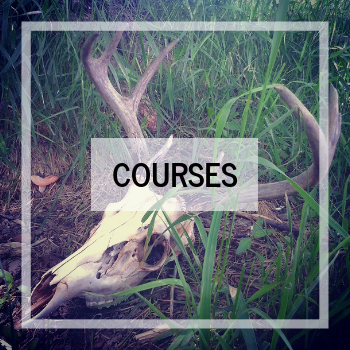 As providing a recommended reading list is damn near obligatory for anyone who puts themselves out there in the online witchcraft world, I finally present my own list. Big important note here: this is a recommended reading list for witches, a recommended reading list for Pagans can succinctly be summed up in “consult the mythology and historical cultural spread of the Deity or pantheon of your interest” with little else of worth to add. In a similar spirit of practicality and functionality, in alphabetical order, I offer the following reading list. Anthropology- This can be summed up as the “study of humans.” Anthropology is a really broad field that includes biology, evolution, language, culture, and, of course, archaeology. Okay, so I admittedly have a bias toward anthropology, but exploring this field will help you to see the similarities that all people share, the aspects common to all culture, and why the differences that exist among us are crucial. It will also help to broaden your worldview and help you to understand your own culture as amazingly unremarkable and just another thread in the tapestry of humanity. So, how does any of this help you to be a better witch? Because magickal practice and what English speakers would recognize as witchcraft exists the world over. Knowing that and being able to see the commonalities that exist among these varying practices will help you to broaden and strengthen your own practice, and understand the important differences among being eclectic, of being syncretic, and flat-out appropriating. Anthropology will teach you respect and humility –two traits of which the importance in your witchcraft practice (and life) cannot be emphasized enough.
Cookbooks- The older the better, 1950-60’s at the latest. Many had snippets of cooking lore and verse sprinkled in. Plus, you’ll learn techniques for making things that is truly useful, like that recipe for head cheese? Great starting advice for cleaning bones. Many will often have herb lore sprinkled in, a little wisp here and there saying how this herb is traditionally used or what an old belief is associated with it. Field guides- This is how you find out about the world around you, how you learn that you are one small part of a big and complex world, and yes, you are a part of it. Field guides will help you to identify the trees, the local plants that you can use to call, to curse, to cure, to bind, to break, to bend, to wield. This is how you learn what new animal is prowling about your home, what those peculiar tracks are, that there really aren’t ravens living anywhere near you and you were insulting crows with the wrong names. This is how you learn a cedar from a juniper, an oak from a beech, a fir from a pine, that those pretty rocks in your yard are agates while those others are a type of quartz. Folklore- Great for learning folk magic, proper etiquette for dealing with spirits, and ways to Travel (i.e. journey to the Otherworld.) Folk lore are the stories of the people. It reflects the struggles they went through, their hopes, their dreams, and certainly their fears. It holds secretes to their relationships with the world around them, with their families, with each other. Large collections of folk tales will do you the most good, the Brothers Grimm are not the be all and end all and, honestly, not a very good source unless you look at early editions of their work as they, admittedly, altered stories to better suit the audience they were marketing to (and this is why all the stories now feature evil stepmothers and not evil mothers…) Regional collections will help you to understand a specific people, though collections will allow you to explore the same motif as found in stories found naturally throughout the world (for example, the motif of Sleeping Beauty is found across the world, with a beautiful Italian version and Persian version being my favorite, though the Chinese version deserves special mention.) Of course, don’t discount some of the salon tales that are frequently included along with large collections of folk tales. Often, they were written by women appealing to the interest folk tales were re-experiencing and basing their motifs and fantastic elements in older folk lore (e.g. The White Cat.) Gardening- Like cook books, the older the better as there will be bits of lore and verse frequently found within the tattered pages of these old tomes. In addition to that wisdom, you will also learn how to grow herbs and plants that you can use in your practice. Some gardening books may even show you where many plants and trees originated, giving you clues to their true nature. The understanding you gain in knowing that a humble plant like Dandelion was deliberately brought here as an important food source, as was Alfalfa –common fodder for cattle- will aid you in approaching these plants and gaining them as allies. Jewelry Making- A simple beginners guide is all you need. Learning the basics in stringing beads, proper knotting, and how to use crimp tubes will be all you need to start making your own amulets, talismans, and devotional jewelry (if you swing that way.) Unless you have the time and money to go all out, resist the inevitable urge to buy all the tools and make a shit ton of jewelry and then go into business. Just… resist. Medicinal Herbalism- If you have any interest in herbalism you will do yourself a favor by forgetting about the Pagan and Witch marketed books on magickal herbalism. Too often, these authors don’t have the experience or the training to warrant taking their advice, which is frequently flat out wrong. If you want reliable herbal information, then consult the works and knowledge of someone who has actual licensed training in the field. In the US, qualified herbal experts will show their credentials with their name. Master Herbalist, Naturopath, Naturopathic Doctor (or just ND,) and Chiropractor are all titles that require extensive herbal training as part of attaining that diploma or degree. Note: an aromatherapist is highly trained in dealing with essential oils, not dried or fresh herb matter. Essential oils and dried herbs are not used the same way and can have different effects on the body. Magickally, their use is not interchangeable, either. You may be wondering how learning the medicinal applications of an herb will help you to understand the magickal uses of an herb, however, the two are very closely related. The use of any herb, magickally or medicinally, is holistic: it affects you on all levels, not just treating a symptom. In this same way, the true nature of any herb is also holistic; you cannot separate the magickal use from the medicinal (or from the culinary) as they are both reflections of the true nature of that plant. Any distinction made between the uses is a distinction that exists within our own mind alone. As such, you’ll begin to notice, herbs that are spicy and induce sweating are often used to treat inflammation and fevers, but they’re also related to fire and the Sun, and the knowing witch may use them for protection, fast healing, and getting rid of things and people that aren’t needed anymore. Superstitions- These will likely be found near or among the folk lore books, but books on superstitions will feature collected folk lore on specific subjects or items. For example, by exploring superstitions, you will find new uses for keys, mirrors, and just how versatile a large and old nail can be within your craft. You’ll also learn of different lore associated with witches from various cultures, giving you hints at where your practice could go (the witch, by whatever cultural name you want to give them, has always been a feared person. Being in touch with that power, being able to create change in a world that often seems random and unkind, these are scary things to those whose lives do not hold such power. It makes the witch an unknown element and is part of the reason why we have always been on the fringe, why we are always outsiders, never fitting in, never being successful by larger societal standards.) Taxidermy- You can learn just about everything you need to get started collecting zoological remains and preparing them for use. An especially good topic is “European Head Mounts” for expert advice on getting that skull gorgeously white and able to withstand mounting to your stang and whirling about the Circle. Any good, basic taxidermy book will teach how to properly skin a variety of animals and how to preserve the hide (i.e. clean and tan.) The miscellaneous section will teach you how to position and preserve feet, claws, and wings which can be very useful in making fetiches and tools. As you can see, there is not one specific book I recommend, and certainly not one on the subject of witchcraft and/or magick. The reason for this is simple: once you learn the basics (i.e. correspondences, how to feel and send energy, the use of any divinatory system) which can be found in even the shittiest of witchcraft books, the next step is to do. You need to actually practice witchcraft to learn witchcraft; you must actually practice witchcraft to be a witch. All the reading is for nothing if you don’t actually use it. And, honestly, after 20 years, there isn’t much new information in any of the books, just different ordering of the same old info, with new exercises and the author’s opinion sprinkled throughout. Form your own opinion, do the witchcraft.
Lara
7/26/2018 09:35:58 am
Thank you for the advice, as always!
Beth
1/15/2019 09:31:43 pm
Bless you so fucking much. Ever since I was a young teen and started off with Wicca (most of us start off with that ugh) I knew that the books I collected didn’t seem very well written and felt more like a market scheme than actually magick, (no shame to wiccans I just don’t agree with the basics of the practice because of the way it was created) I’m so thankful for your website, And have been using it for the last couple of days since it’s one of the few places online I can find a witch I respect speaking what seems to be more of a solid understanding of what it means to be a fucking witch and not a trend. Comments are closed.
|
Throwing the BonesStay ConnectedThank you!You have successfully subscribed. Archives
January 2023
|



